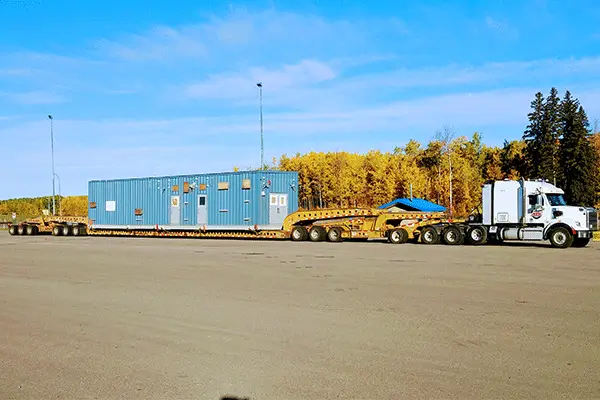What is a Semi Truck?
A semi truck, also known as an 18-wheeler or a tractor-trailer, is a large vehicle consisting of a tractor (the front part with the engine) and a trailer (the rear part that carries the cargo). These vehicles are designed to handle heavy loads and travel long distances efficiently.
Understanding the Weight of Semi Trucks
Empty Weight

An empty semi truck typically weighs between 15,000 and 25,000 pounds (6,800 to 11,300 kilograms). This weight covers the truck’s chassis, engine, and basic components without any cargo.
Loaded Weight

When fully loaded with cargo, the total weight of a semi truck can reach up to 80,000 pounds (36,300 kilograms). This weight limit is generally enforced on highways to ensure safe and efficient transport.
How to Measure Semi Truck Weight

Semi trucks are commonly weighed at designated weigh stations along highways. These stations use sophisticated scale systems to measure the truck’s weight accurately. Drivers must adhere to weight limits to avoid penalties and ensure safe operation.
Key Factors Influencing Semi Truck Weight
1: Trailer Type

Different trailers have different weights. For example, a standard flatbed trailer is lighter compared to a specialized refrigerated trailer, which includes additional cooling equipment.
2: Cargo Type and Amount

The weight of the cargo being transported greatly impacts the total weight of the truck. Heavy or dense cargo will increase the overall weight.
3: Truck Configuration

Trucks with more axles can carry more weight but may themselves weigh more. The configuration of the axles and the suspension system affects the truck’s total weight.
4: Additional Equipment

Extra features or equipment such as additional fuel tanks, toolboxes, or custom modifications can add to the truck’s weight.
Why Truck Weight Matters
- Regulatory Compliance: Weight limits are regulated to ensure safety on the roads. Compliance with these limits helps avoid fines and legal issues.
- Safety Considerations: Proper weight management is crucial for safe driving. Overweight trucks can lead to accidents, increased wear on tires, and damage to road infrastructure.
- Operational Efficiency: Weight affects fuel consumption. Heavier trucks use more fuel, impacting the cost-effectiveness of transporting goods.
FAQs
1. How much does a semi truck weigh?
A semi truck’s weight can vary, but typically:
- Without cargo (empty): 10,000 to 25,000 pounds (4,500 to 11,300 kg) for the tractor alone.
- Fully loaded: Up to 80,000 pounds (36,287 kg), including the truck, trailer, and cargo, which is the maximum legal weight allowed on most roads in many countries.
2. What is the weight of a semi truck without a trailer?
A semi truck without a trailer, also called the tractor, typically weighs between 10,000 and 25,000 pounds (4,500 to 11,300 kg), depending on the model, engine size, and additional features.
3. What is the weight of a semi truck with an empty trailer?
When paired with an empty trailer, a semi truck generally weighs between 30,000 and 35,000 pounds (13,600 to 15,900 kg). The exact weight depends on the type of trailer being used.
4. How much does a semi truck trailer weigh?
The trailer on a semi truck typically weighs between 10,000 and 15,000 pounds (4,500 to 6,800 kg) when empty. This weight can vary based on the type of trailer, such as a flatbed, refrigerated, or dry van trailer.
5. What is the maximum weight a semi truck can carry?
In many regions, the gross vehicle weight limit for a semi truck (tractor + trailer + cargo) is 80,000 pounds (36,287 kg). However, some specialized trucks with additional axles can legally carry more weight.
Summary
The weight of a semi truck is a fundamental aspect of its operation and regulatory compliance. By understanding the factors that influence truck weight and why it matters, truck drivers, fleet operators, and industry professionals can ensure safer and more efficient transportation.
















